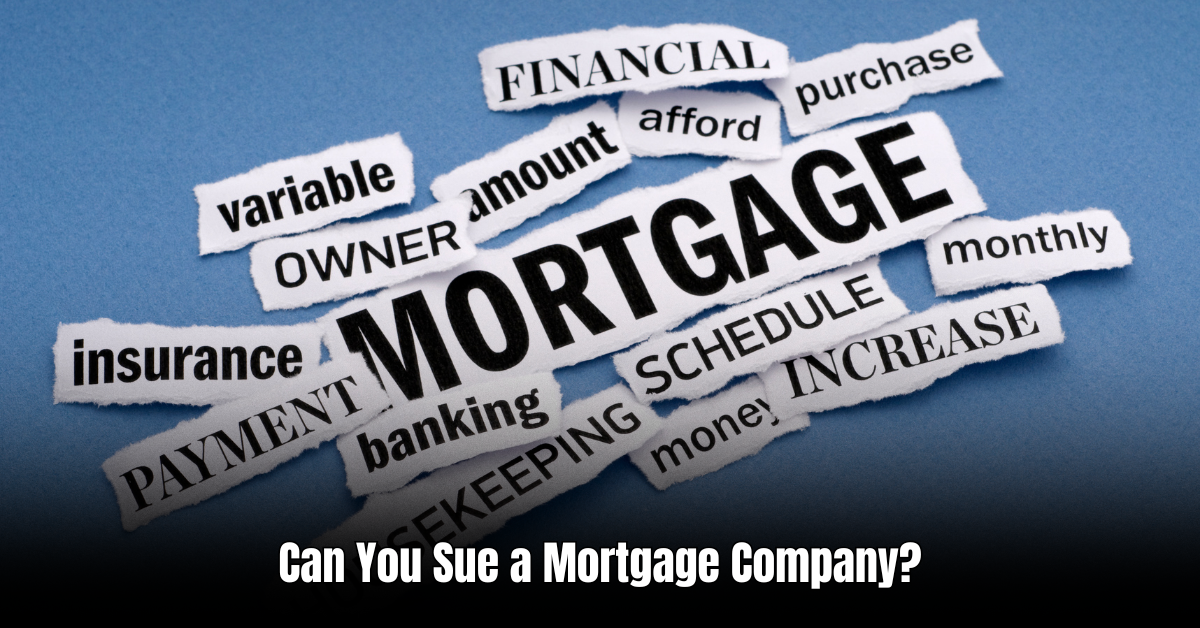Buying a home is a significant achievement for many people, but it often requires financing through a mortgage lender or mortgage company. While most mortgage lenders operate in good faith, there may be situations where borrowers feel they have been wronged and may wonder if they can sue their mortgage company. In this article, we will explore the circumstances under which you may be able to take legal action against a mortgage lender.
1. Breach of contract:
If your mortgage lender fails to fulfill their obligations as outlined in the mortgage contract, you may have grounds to sue for breach of contract. Common breaches include failing to provide the agreed-upon loan terms, misrepresenting fees or interest rates, or mishandling escrow accounts improperly. It is important to carefully review your mortgage agreement and consult with an attorney if you suspect a breach of contract.
2. Predatory lending practices:
Sometimes, mortgage lenders engage in predatory lending practices that exploit borrowers. These actions may include charging excessive fees, inflating interest rates, and presenting unfair loan terms. If you believe you have been a victim of predatory lending, you may have grounds to sue and seek compensation for any harm caused. It is essential to gather all documentation and evidence to support your claim.
3. Unfair or deceptive practices:
If a mortgage lender engages in unfair or deceptive practices in its dealings with borrowers, it may be possible to sue the lender. This can include making false representations, withholding important information, or engaging in discriminatory practices. You should consult with an attorney who specializes in consumer protection law to determine if you have a valid claim based on unfair or deceptive practices.
4. Violations of federal or state laws:
Mortgage lenders are required to adhere to federal and state laws when originating and servicing loans. If your mortgage company violates any of these laws, you may have grounds for legal action. Some examples of violations may include the mishandling of foreclosure procedures, illegal collection practices, or failure to provide required disclosures. It is crucial to understand your rights as a borrower and consult with an attorney to discuss potential violations.
5. Negligence:
In some cases, borrowers may be able to sue a mortgage company for negligence. This can occur if the lender failed to exercise reasonable care in handling your loan, resulting in financial harm. Negligence claims may arise from mistakes in loan processing, improper calculations, or other actions that directly impact your financial well-being. Consulting with an attorney experienced in mortgage litigation can help you assess the viability of a negligence claim.
Conclusion:
While suing a mortgage company may be a daunting process, there are circumstances where legal action may be appropriate. If you believe your mortgage lender has wronged you, it is crucial to consult with an attorney who specializes in mortgage litigation. They can guide you through the process, assess the validity of your claim, and help you seek a fair and just resolution.
Remember, each case is unique, and this article should not be considered legal advice. It is recommended that you seek professional legal assistance to understand the specifics of your situation and explore the available options.
Frequently Asked Questions: Can You Sue A Mortgage Company: Know Your Legal Options
Can You Sue A Mortgage Company If They Deny Your Loan Application?
Yes, you can sue a mortgage company if they deny your loan application. However, you need to have valid grounds and evidence to support your claim.
Are Mortgage Companies Legally Obligated To Lend Money?
Mortgage companies are not legally obligated to lend money. They have the right to deny loan applications based on their lending criteria and risk assessment.
How Can A Mortgage Company Be Held Accountable For Wrongfully Foreclosing?
To hold a mortgage company accountable for wrongfully foreclosing, you need to gather evidence of their breach of contract or violation of foreclosure laws. Consult a lawyer.
Can You Sue A Mortgage Company For Discrimination?
Yes, you can sue a mortgage company for discrimination if you believe you were denied a loan based on your race, gender, religion, or other protected characteristics. Seek legal advice.
Ismail Hossain is the founder of Law Advised. He is an Divorce, Separation, marriage lawyer. Follow him.





Leave a Reply